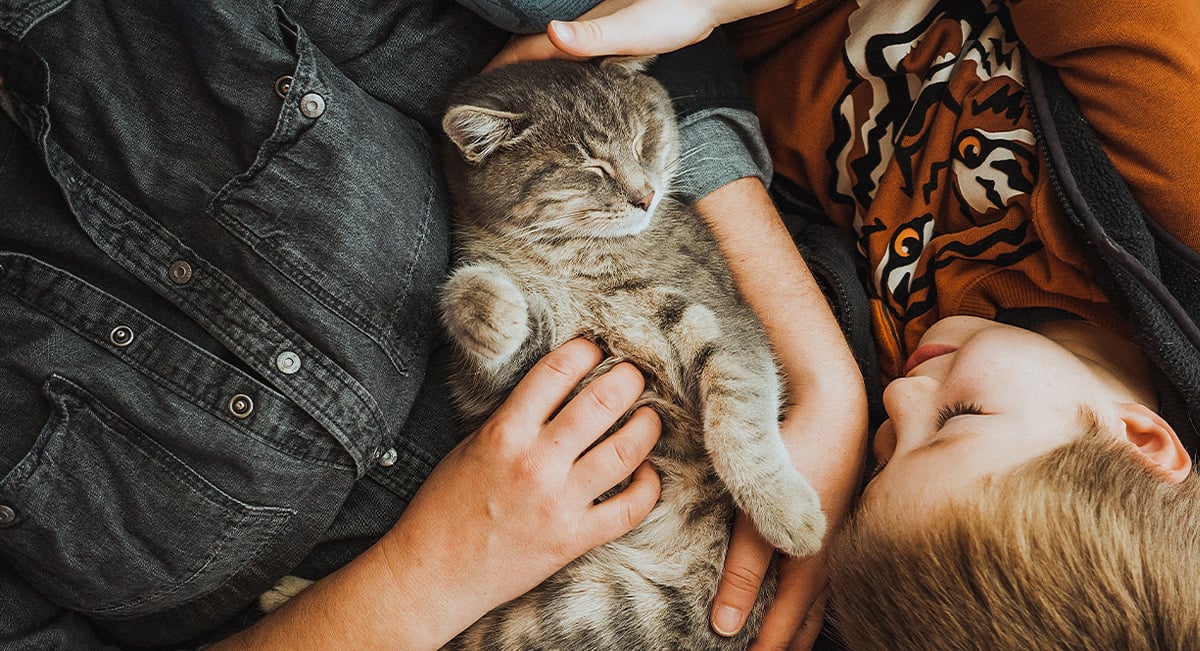
This September, we’re celebrating cat month with expert tips on caring for and enjoying time with your cat. This week, we’ll share healthcare tips along with some of the more common medical conditions to watch for in your indoor or outdoor tabby.
Feline Lower Urinary Tract Diseases are Common
If you or anyone you know has ever lived with a cat, then you’ve probably dealt with a urinary tract issue of some kind or another. It’s common in cats that are overweight or eat nothing but dry food.
Look for symptoms such as trouble urinating (crying while going), blood in their urine, vomiting, dehydration, depression, urinating in unusual places, and a lack of appetite. It can be a serious problem, so get your cat to the vet for a checkup if you think there’s an issue.
All Aboard the Vomit Train
Cat vomit isn’t fun to clean up. But the cat dosen't enjoy it either. When a feline vomits, it can be any number of issues, including something they ate, infections, diabetes, or just simply a hairball. Usual checkups with the vet can help ensure that more serious issues aren’t the cause.
Fleas Love Cats
But your domesticated, wannabe mountain lion doesn’t love those tiny, annoying invaders. The best remedies for cats are flea collars, medication, powders, foams, and topicals. Signs your cat might have fleas include continual scratching and licking, hair loss due to scratching and licking, hot spots, and visible fleas on the skin.
Watch for Tapeworms
Okay, you cannot see tapeworms that live inside your cat. But this common cat health issue, often caused when a cat eats a flea, can escalate quickly. If you notice your cat is losing weight for no apparent reason, look closely at their feces. Tapeworm segments (that look like grains of rice) will usually show up in their stool, and can come out of your cat’s odorous-end while it’s sleeping. Your vet will treat tapeworms with oral or topical remedies.
And You Thought Dog Diarrhea was Bad
Runny cat feces is even worse. Common symptoms include allergies, infections, or bad food. Some of the more concerning issues are liver disease, intestinal parasites, and cancer. When your kitty gets diarrhea, give them plenty of fresh water but remove their food for up to 24 hours. If the problem persists and if they are vomiting, have a fever, or have no interest in food or water, take them to the vet.
Cat Eye Issues
Like dogs, cats can develop eye diseases. For felines, the underlying problems include corneal ulcers, cataracts, glaucoma, retinal disease, and viruses. If they have cloudy eyes, always have gunk in the corner of their eyes, paw at their eyes, or continually have wet fur below their eyes, ask your vet for guidance.
Even Cats Get Sick
When a cat comes down with something, it’s generally in their upper respiratory system. Symptoms include a runny nose, teary eyes, sneezing (yes, cats sneeze), cough, or fever. Your veterinarian may have advice on how to treat the symptoms and help your cat recoup.
How to Spot Possible Cancer
As with other pets, cancer is a possibility. Common cancers in cats include feline leukemia, lymphosarcoma and squamous cell carcinoma. Look for lumps, swelling, sores on the skin that don’t heal, lethargy, difficulty breathing, and excessive vomiting.
Cat Care Starts at Coastal
Always talk to your vet about options that are right for you and your cat, then stop by your local Coastal to pick up all of your cat care supplies. We carry aisles of flea treatments, tapeworm options, food, toys, treats, bedding, and a lot more for all the furry and feathered critters in your life.
